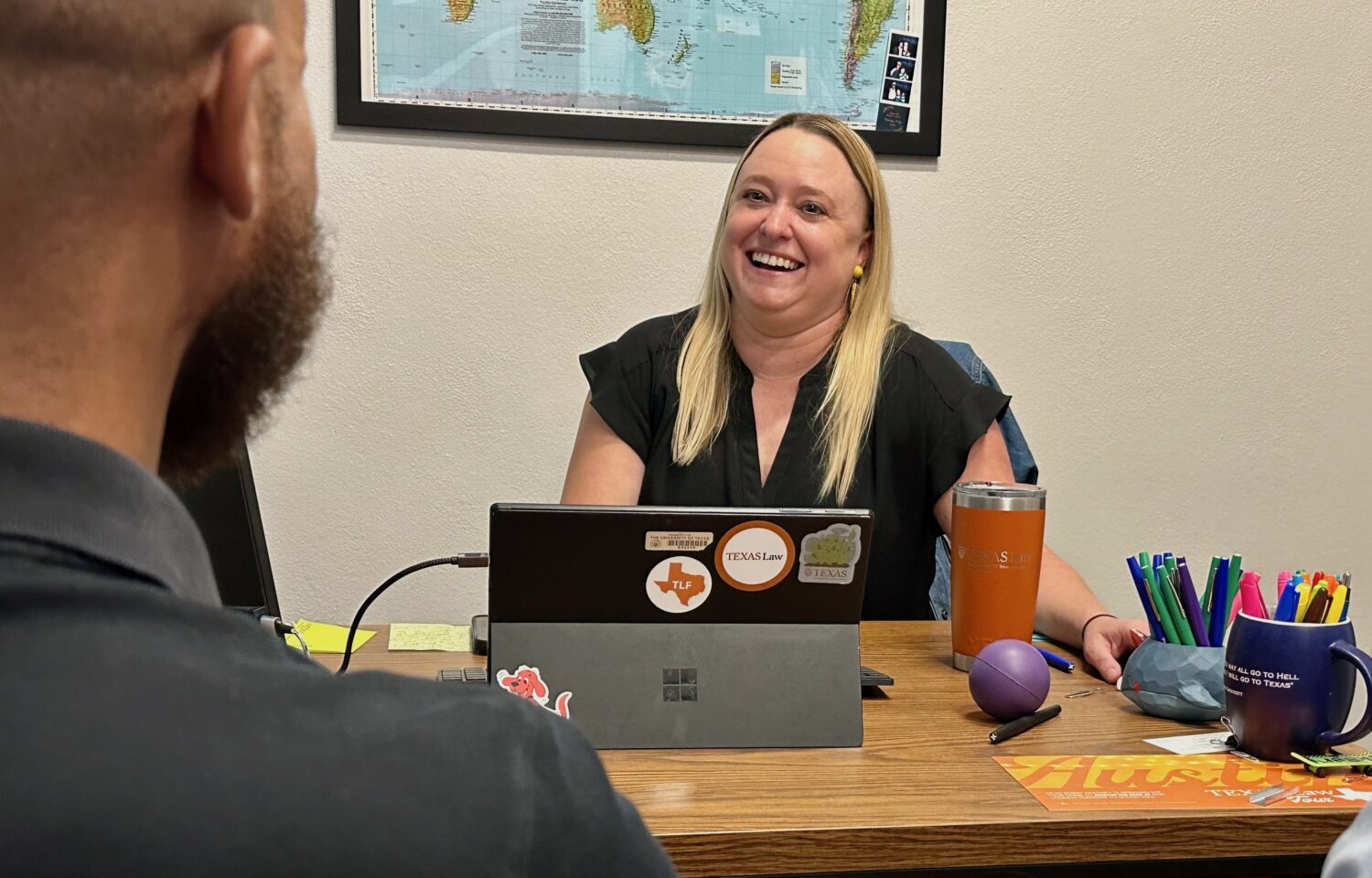
Texas Law offers an Academic Success Program to help every student at Texas Law succeed academically. At Texas Law, we believe academic success means more than passing classes, passing the bar, and finding the right-fit first job as a lawyer (though those are important metrics!).
Academic success at Texas Law means feeling fluent and confident speaking the language of the law; and building on the experiences, skills, and academic preparation that got you to Texas Law; and “thinking like a lawyer.” Every student at Texas Law has the potential and skills to succeed academically and professionally.
Why might students seek academic support?
Law school requires more and different studying than undergraduate courses. Students at Texas Law may seek academic support for a variety of reasons, some more obviously related to academics than others.
Students may find that reading for law school takes longer than expected or longer than other types of reading. Academic success hinges on smart and efficient time management. Students may experience spikes of stress or anxiety. Writing can be a particularly difficult process because law is a language of precision and students may not have experience revising and editing writing work product. Students may also identify, or need help recognizing, gaps in their academic experience or preparation.
None of these factors or others—many of which are beyond student control—impact our Texas Law students from achieving academic success. We work with students to learn or practice as they go through law school.
Texas Law students succeed overwhelmingly in terms of objective measures like passing classes and securing summer jobs. But law school, like life, can be hard. Whatever you are feeling, we have supports in place to help you succeed.
Meg Clifford ’12,
Assistant Director of Academic Success
Individual Coaching
The Assistant Director for Academic Success, Meg Clifford, and the SAO academic advisors are available for regular or periodic coaching and check-ins to help students set goals and monitor their progress.
1L Programming
-
Law School 101 is our signature series of programs introducing 1Ls to the various skills and practices they will need to succeed in law school academically, healthily, and maintaining work-life balance. LS101 offers insights and best practices for approaching law school academics, including: reading for class, briefing cases, outlining, and studying for exams.
-
Highly motivated and accomplished upper-level students are selected to serve as Academic Success Fellows to lend academic support to 1Ls in each large section.
Academic Success Fellows facilitate workshops, individual and group coaching, and structured study groups and times. The Fellows help students identify individual areas of academic struggle, strategically improve study habits, master core first-year legal concepts, and navigate academic support opportunities at Texas Law and UT Austin.
-
Academic Success Fellows help students organize into small groups to study, complete practice problems, and prepare for final exams. Study groups allow students to ensure they are mastering course material by reviewing class and reading notes, and asking and answering questions about the material together with their classmates.
-
The Assistant Director for Academic Success and Academic Success Fellows will hold additional sessions for small groups of students or individuals who want to target areas for improvement after the fall and headed into the spring semester.
Other Resources for Academic Success at Texas Law
